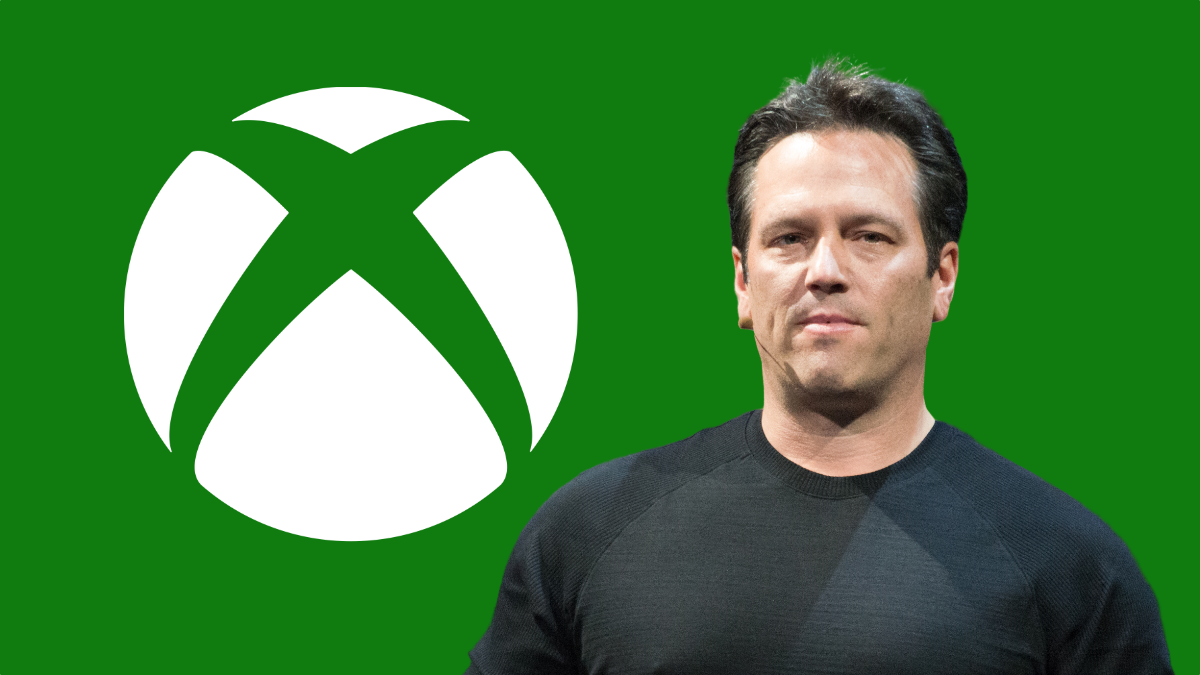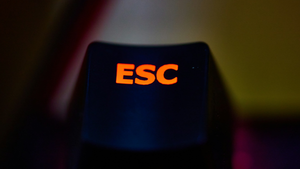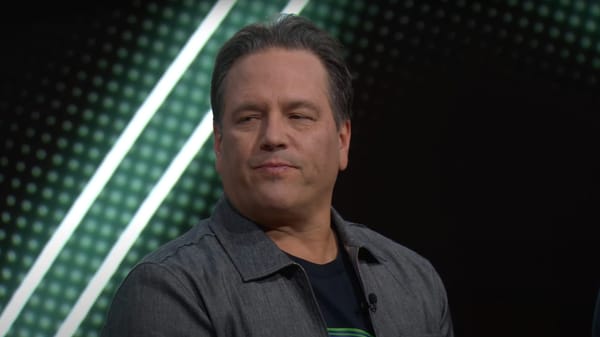
On Sunday, Xbox held its 2023 Showcase, giving players a taste of the games they can expect on its platforms in the year to come. But if you were paying close attention, you would’ve noticed that most of the trailers and previews were followed by a graphic with an important promise: “Play it Day One with Game Pass.”
Game Pass is a subscription service launched by the Microsoft-owned game brand in 2017, but which has been getting a lot more attention in recent years. Instead of the usual model of buying physical or digital games to play on Xbox consoles or PC, Game Pass promises that for a reasonable monthly fee players will have access to a growing library of titles they can play as much as they want. If they subscribe at a higher tier to get access to Cloud Gaming, they can stream those games instead of having to download them to their device (as long as their internet connection can handle it).
After seeing the subscription model take over music, film, and television, it’s no surprise to see similar services being launched for video games. While Game Pass is the clear leader, Sony’s Playstation also offers several tiers of a Plus subscription service, while publishers offer their own services like EA Play and Ubisoft+. Even Apple offers an Arcade subscription bundle for mobile games.
Just because subscription services are available for games does not mean they’re the future of the industry though. Over the past year, we’ve seen a clear reassessment of the impact of streaming services on film and television, with writers currently on strike over what it’s meant for their profession. But Microsoft is charging forward because they have a very clear incentive to upend the business model of video games. Otherwise, its corporate leadership feels Xbox will never defeat longtime rivals like Nintendo but particularly Sony.
Xbox wants to change the game
In an appearance on the Kinda Funny Xcast last month, Xbox head Phil Spencer was very candid about the position of Xbox in the games industry. He acknowledged that Xbox was in “third place” behind Nintendo and Sony, and argued the strong positions of those incumbents made it difficult for Xbox to ever dislodge them.
Xbox has never beaten Playstation on global console sales. The Playstation 2 blew the original Xbox out of the water, selling over 150 million units to become one of the top selling consoles of all time, compared to 24 million Xbox consoles. Its successor, the Xbox 360, was actually ahead of the Playstation 3 for a long time, but by the end of their lifecycles Playstation had once again outsold Xbox globally, even though Xbox sold more consoles in the United States. But then the Playstation 4 sold more than double the Xbox One, and now the Playstation 5 appears to be vastly outselling the Xbox Series S and X.
Those figures lead to a clear conclusion: “We're not in the business of out-consoling Sony or out-consoling Nintendo,” Spencer told the Xcast. In particular, he singled out the Playstation 4/Xbox One console generation as a loss that makes it difficult for Xbox to ever make up enough ground. “We lost the worst generation to lose in the Xbox One generation, where everybody built their digital library of games,” said Spencer. “This idea that if we just focused more on great games on our console, that somehow we're going to win the console race, I think doesn't relate to the reality of most people.”
Spencer asserts that since people started buying digital games that only carry over within one console ecosystem during the last generation, the barrier to switching to another brand now is much higher than previous cycles when people simply bought cartridges or discs. In other words, since over 100 million people bought Playstation 4s and many of them likely bought digital games linked to their Playstation accounts, those people will be far more likely to buy another Playstation console than jump ship to Xbox in the future — regardless of how good Xbox’s exclusive games are.
From Spencer’s perspective, that means if Xbox ever has a chance of beating Playstation, it can’t just make better experiences; it needs to change the foundation of the entire game the companies are playing. And that’s why Microsoft is putting so much money and effort behind Game Pass.
Concerns about subscription model
Playstation and Nintendo are open about their commitment to the console ecosystem. Neither has made the degree of commitment to subscription game libraries as Xbox, and they continue to see console sales and game purchases as the key model for the industry — not just because it’s the way it’s been for decades, but because they’re prospering under that model.
Last year, Playstation CEO Jim Ryan was very clear that he has no plans to begin adding the company’s exclusives to its Playstation Plus subscription service on release day, like Xbox does with Game Pass. He felt it would disrupt the “virtuous cycle” that allows the success of those games to generate the investment necessary for future high-quality titles. “The level of investment that we need to make in our studios would not be possible, and we think the knock-on effect on the quality of the games that we make would not be something that gamers want,” he said at the time.
While some commentators might balk at such a suggestion, there is a real concern within the industry about the broader implications of replacing the model of buying games with subscriptions — especially given the experience in film and television. In that industry, there was a big push into subscription streaming services that were seen as the future. Yet, over the past year, the narrative has soured.
After losing billions of dollars chasing subscribers with expensive content plans, investors are now demanding services like Netflix, Disney+, and Max turn a profit as they acknowledge the business case isn’t as lucrative as the model that existed before. Meanwhile, the quality of programming has declined while companies gut their content libraries and raise prices. It’s not at all clear that going the subscription route is best for the gamers, let alone the industry. But if you’re losing and have the deep pockets of one of the largest companies in the world, that doesn’t really matter — and that’s the position Xbox finds itself in.
New strategy driving consolidation
“We have a different vision,” Spencer asserted to the Xcast crew. “Play the games you want with the people you want anywhere you want.” Spencer was being challenged for not giving console players enough attention, but his response suggested they’re simply not the focus for Xbox any longer. Instead of selling consoles, the company wants Game Pass subscribers who can play on those consoles, but also on their PCs or any number of other devices through Cloud Gaming.
Just because Spencer thinks Xbox won’t sell more consoles than Sony or Nintendo doesn’t mean the company isn’t also trying to get the best possible games on its platform — its strategy has simply shifted as it seeks subscribers instead of consoles buyers. And that’s shaking up the entire industry.
In the same way that the shift to streaming incentivized consolidation among film and television companies as they sought to compete to see which few services would ultimately dominate the market, Xbox’s push to cement the positions of Game Pass by tapping into Microsoft’s war chest is having the same effect. Since 2017, it’s been on a buying spree to pick up third-party game companies, including Elder Scrolls-maker Bethesda Studios and the ongoing attempt to acquire Activision Blizzard for $68.7 billion — one of the biggest deals in the history of the entire tech industry, let alone video games.
Recognizing the need to keep up, Playstation has also been buying up studios, but they haven’t been able to make the kind of large purchases Xbox has pursued. Sony’s market cap is $126 billion, compared to Microsoft’s $2.6 trillion. In March, it was reported that Sony had $5 billion left of an $18 billion acquisition budget set in 2021 — a drop in the bucket next to the Activision Blizzard deal alone. Last month, the company said it was considering spinning off its financial services division so it would have more to invest in games and some other priority areas.
Sony knows it has to keep up with Microsoft even if it’s not taking the same gamble on subscriptions, but it doesn’t have nearly the same amount of capital to deploy. It’s also hardly clear that the scale of consolidation will ultimately be good for the quality of games being created. Spencer recently apologized for after the poor reception of Redfall, an anticipated Xbox exclusive, while questions remain about the scale of Playstation’s growing investment in live service games which usually rely on microtransactions for excess profitability, instead of the single-player experiences its studios are known for. That’s on top of a string of titles in recent years that have been released with bugs, if not completely broken.
Be wary of Xbox’s plans
Even as Spencer argues Xbox is in third place, he has an incentive to frame Nintendo and especially Sony as dominant market leaders because it makes it easier to get major deals like the Activision Blizzard purchase past regulators. But Xbox has the full force of Microsoft behind it, and in trying to transform the industry it’s hoping to cement its dominance like Netflix did in streaming video: by losing money and underpricing its service in the hopes of forcing the entire industry to remake itself around the business model it’s creating. That could backfire for Xbox though.
The Activision Blizzard deal is already being blocked by the UK Competition and Markets Authority (CMA), while the US Federal Trade Commission is suing to stop it too. It’s also trying to ensure Microsoft can’t close the deal before the court issues a verdict. The CMA’s concerns specifically focus on what the deal could mean for Xbox’s dominance of the “cloud gaming” sector, which seems to refer not just to game streaming, but also the subscription business model it’s pushing with Game Pass.
Microsoft and Activision Blizzard are fighting the CMA’s decision, which everyone acknowledges will be difficult, but Spencer’s admission confirms the regulator’s fears: that Microsoft’s ambition is to change the business model of the industry and use the acquisition of a major third-party game publisher to cement its position in the subscription gaming space in such a way that Sony and Nintendo will struggle to challenge. As I’ve explained, that’s not just because they’re not following Xbox’s lead into subscriptions with the same fervor, but also because they don’t have the capital to make the same kind of massive deals as their Microsoft-backed competitor.
The coming years will be pivotal in determining what the future of the games industry looks like, and how it expects players to access games in the future. There are certainly aspects of the subscription model that are appealing right now, but people should be wary of embracing that change seeing how it’s played out in film and television. It might seem great now, but we have a long history of seeing the tech industry’s big promises fail to materialize once the business realities set it. Phil Spencer may be adored by Xbox gamers, but he’s still a corporate executive at the end of the day and has to deliver for shareholders before anyone else.









Member discussion